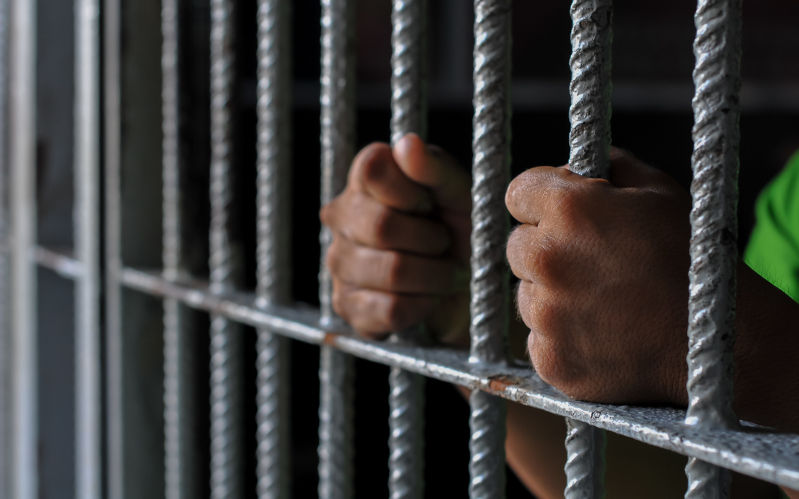Making First Nations prisoners visible in Labor politics
November 26, 2025
Despite Western Australian Labor’s rhetoric on equality and Closing the Gap, incarcerated First Nations people remain politically invisible. Without formal representation and lived-experience voices in party deliberations, meaningful reform is impossible. The 2027 State Labor Conference is the moment to change that.
Incarcerated First Nations people remain politically invisible in Western Australia, and this invisibility is a major barrier to addressing the state’s escalating incarceration crisis. If the Labor Party is to meet its commitments to Closing the Gap – particularly the target of reducing First Nations incarceration by at least 15 per cent by 2031 – it must confront the reality that those most affected by punitive policies have no voice within political deliberation. Representation at the 2027 State Labor Conference is an essential step towards overcoming the barrier and undertaking necessary reform.
Labor’s blind spot
At the recent State Labor Party Conference, I listened closely for a plan to address this crisis. Speakers repeatedly invoked Labor’s belief that all people are created equal in their entitlement to dignity and respect and should have an equal chance to achieve their potential. Ministers highlighted achievements and projects for health, housing, and education – each backed by substantial funding. One minister emphasised that these initiatives are foundational to a “fair and decent society.”
Yet the gulf between what is promised to most Western Australians and what is delivered to incarcerated First Nations citizens could not be wider.
Health: prisons are excluded from Medicare, resulting in delayed treatment and insufficient medical staff and facilities. First Nations inmates cannot receive the Medicare 715 health check – an essential tool for early detection and management of chronic illnesses that disproportionately affect these people.
Education: in the prison system, there is little vision, lack of culturally relevant educational approaches to learning, and insufficient staffing and facilities to address low literacy and poor education outcomes. As for rehabilitation, there are staff shortages and compromised programs. This neglect reinforces the very conditions that lead to re offending.
Housing: across Australia, more than half (54 per cent) of prison dischargees expect to be homeless upon release, and 44 per cent expect to rely on short‑term or emergency accommodation. In WA, emergency shelters are not government‑supported. First Nations people leaving prison therefore rely heavily on overcrowded family homes or end up sleeping rough.
Justice: reports were given to youth detention, the Stolen Generations Redress Scheme and multiple other legislative successes. There was, however, no mention of the adult prison population. The omission implies that the political preference for punitive responses to crime is set to continue. This will lead to the likelihood of already overcrowded prisons becoming increasingly chaotic, leading to more assaults on inmates and staffs as well as a breakdown in order and security.
Listening to some voices, not others
Members from various party organisations – Jewish, Muslim, LGBTQ+, Women, First Nations – also shared courageous accounts of lived experience. They described discrimination, harm, and exclusion. These testimonies matter deeply.
Yet the voices missing were those of incarcerated First Nations people whose experiences of harm are multiple and compounded across generations. Yes, they have incurred harm, but they also bear the inherited burdens of harm and harms experienced within the prison system. Harms, too, are awaiting them on release.
Without bringing these issues into the Labor Party’s internal deliberations, there is little hope of achieving meaningful reform directed to Closing the Gap.
Why political visibility matters
Failure to address the invisibility of incarcerated First Nations people ensures that high rates of incarceration will continue unchecked. This invisibility shields ministers, policymakers, delegates and members from confronting the human consequences of three decades of ineffective and expensive “tough on crime” policies.
If Labor is serious about Closing the Gap, it must create political space for those most affected by these punitive policies. Their lived realities contain essential insights into: how these policies fail, why re-offending persists, and what enlightened policies, practices and supports are genuinely needed to build safer, healthier communities.
A call for representation
To Close the Gap, First Nations people with lived experience of the prison system must gain formal representation at the 2027 State Labor Conference. This could include:
- a dedicated agenda item addressing First Nations incarceration;
- opportunities for formerly incarcerated individuals to speak;
- a policy working group that includes people with lived prison experience; and
- mechanisms for participation from within correctional facilities (e.g., written statements, video testimony, delegate proxies).
Such representation would not only honour Labor’s values of fairness and equality, it would also strengthen the party’s policy development. Ignoring prison‑involved communities limits the party’s capacity to understand the systemic drivers of incarceration and to advance alternative, cost-effective, and culturally relevant approaches.
A moment for renewal
Nothing demands more fidelity to Labor’s beliefs than confronting hard truths. A state committed to Closing the Gap must create opportunities for renewal in both policy and practice.
By ensuring the presence of formerly incarcerated First Nations voices at the 2027 conference, Labor can begin aligning its health, education, housing, and justice policies with its stated commitment to equity – and with the needs of the communities it serves.
Visibility is the first step toward meaningful, transformative reform. The 2027 State Labor Conference is where this change must begin.
The views expressed in this article may or may not reflect those of Pearls and Irritations.
Please support Pearls and Irritations with your tax deductible donation
This year, Pearls and Irritations has again proven that independent media has never been more essential.
The integrity of our media matters - please support Pearls and Irritations
For the next month you can make a tax deductible donation through the Australian Cultural Fund


